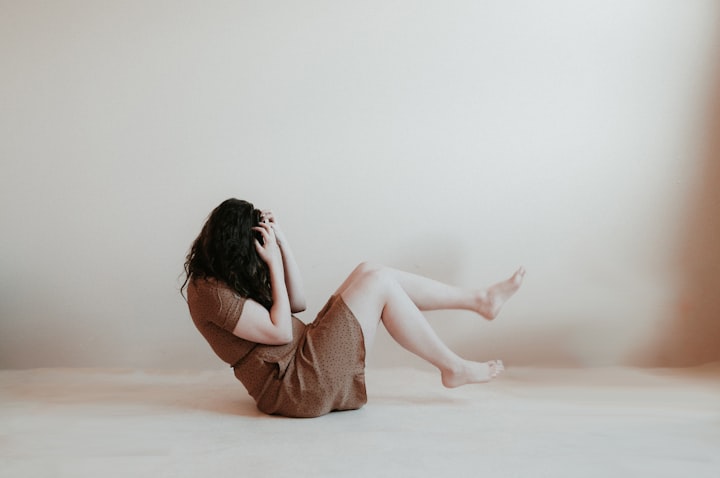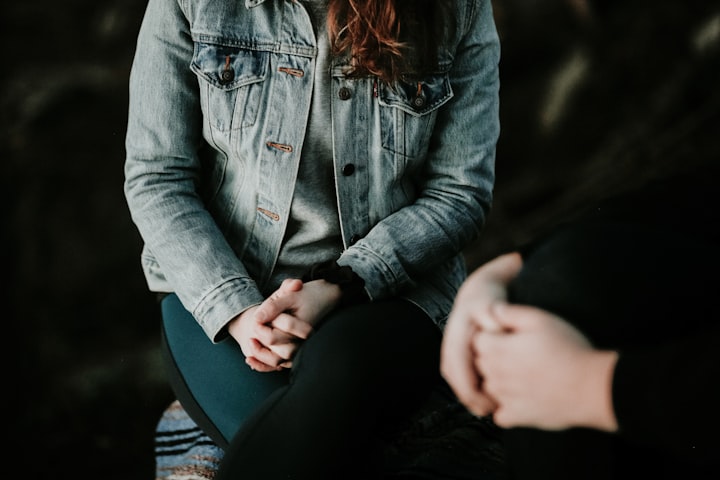How to Calm an Anxiety Attack
5 Helpful Tips For You To Calm Your Anxiety Attack

Everyone knows how unpleasant it is to have an anxiety attack. When an anxiety attack occurs, it is never easy to overcome it. Anxiety symptoms can last anywhere from a few minutes to several hours. Many anxiety sufferers choose to ignore their mental illness because they believe their symptoms will pass. In any case, this is not the case. It will worsen over time, and when it does strike, the symptoms will be unbearable, as they have been in previous attacks. So, if you are a victim of this disorder, you should seek help from an expert or doctor right away. A happy life is free of anxiety disorders.
Anxiety Attack Symptoms
- Nervous, restless, or tense feelings.
- A feeling of impending danger, panic, or impending doom.
- An elevated heart rate is a condition in which one's heart beats faster than usual.
- Rapid breathing (hyperventilation)
- Sweating.
- Trembling.
- Feeling sluggish or exhausted.
- It's difficult to concentrate or think about anything other than the current worry.
Anxiety Attack vs Panic Attack: What's the Difference?
A panic attack's symptoms are strong and disturbing. They are frequently characterized by a sensation of "unreality" and alienation. The severity of anxiety symptoms ranges from mild to severe. Panic attacks occur immediately, whereas anxiety symptoms worsen over minutes, hours, or days.
In this article, you will learn 5 useful and helpful tips to relieve your anxiety attack.
1. Stress Relive

When you're under a lot of stress, you're more likely to have an anxiety attack. If you ever find yourself stressed, it is best to find a way to reduce the amount of stress you are experiencing. Sharing your problem with friends or family members is one of the most basic solutions. Whether you believe it or not, expressing or sharing what's bothering you is an effective stress reliever. Furthermore, your friends or family may provide you with an appropriate idea or suggestion for dealing with the complex situations you are currently confronted with. You will also feel more relieved and happy once you realize you are not alone.
2. Therapy Session

Another excellent way to reduce your anxiety attack is to attend a therapy session. Professional therapists can teach you a lot about your current situation. Not to mention, when people are anxious or nervous, they tend to overlook a lot of details in their situation. As a result, the therapists will examine your situation and offer you a suitable solution.
3. Medication

The quickest way to relieve your anxiety symptoms is to take medication, especially if your anxiety is at a critical stage. The only disadvantage of medication treatment is the possibility of side effects. Drowsiness, nausea, and blurred vision are all possible side effects of the medication.
4. Socialization

People who suffer from anxiety disorders often believe that they are strange and that something is wrong with them. As a result, they choose not to interact with others. This is a poor decision. Rather than isolating yourself from others, you should join support groups or interact with other anxiety sufferers more frequently. You can share or exchange your experiences with other sufferers in this way. You're one step closer to eradicating anxiety disorder once you realize it's a common occurrence for everyone.
5. Self-help Products or Guides

Anxiety disorder patients are generally pessimistic. As a result, they are hesitant to confide in others about their problems. They believe that by making fun of his problems, people will laugh at him. It's completely understandable. So, if you're one of the aforementioned individuals, don't be concerned. You can use a variety of self-help products or guides available on the market. These self-help products/guides will teach you how to effectively manage your anxiety disorder and what to do and what not to do when you are anxious or nervous. The majority of these self-help items are books, video programs, and digital audio.
Frequently Asked Questions.
1. How do you calm anxiety quickly?
Here Are some helpful tips
- Breathe.
- Accept that you are worried or angry.
- Put your ideas to the test.
- Let go of any anxiety or rage.
- Visualize yourself being at ease.
- Consider your options.
- Play some music.
- Shift your attention.
2. How can I calm my anxiety at home?
Home Remedies: Anxiety and Stress
About the Creator
Naveen Kumar
Hi everyone! I am an A-level graduate and I love to write on Health topics. I have succumbed to the passion of writing which has pushed me to learn more about different essay writing techniques and article writing techniques.






Comments
There are no comments for this story
Be the first to respond and start the conversation.